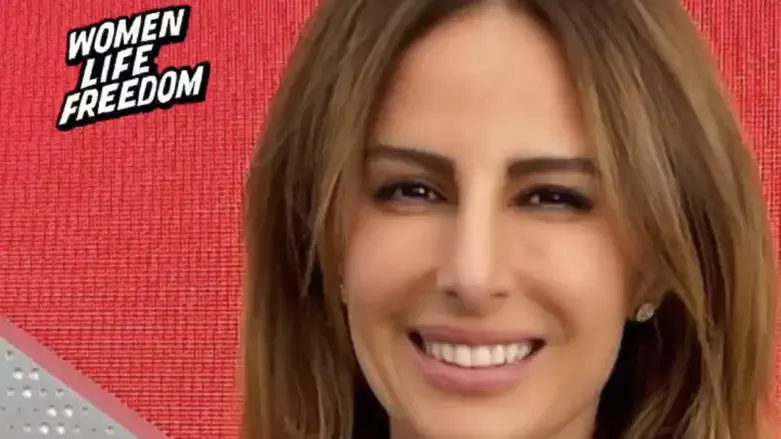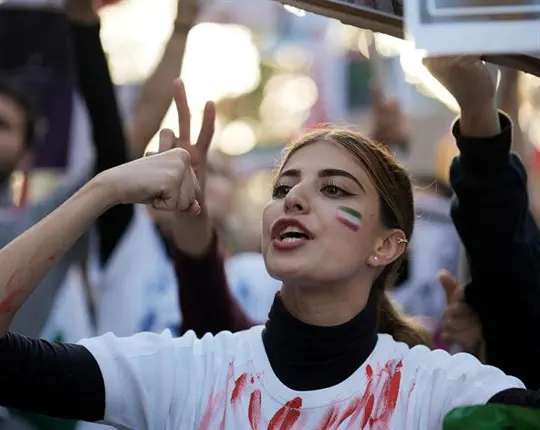
Negar Karamati represents the Women's and Children's Task Force, Iran Constitutional Party (Liberal Democrat)
After the fall of the late Shah from Iran in 1979, the Iranian people came under the control of a network of reactionary clerics who shaped the country’s judicial and social laws based on their fundamentalist, non-modern views. This period coincided with an eight-year war, during which the government imposed widespread social restrictions, perpetrated numerous executions, and instituted severe repression on society.
A climate of hostility towards women was created, along with significant limitations on their participation in society. Overall, until 1997, women rarely played a prominent role in public and social arenas.
Since 1997, the presence and rights of women have been gradually discussed in some domestic and international forums. The success of women in universities and scientific and research centers, both within and outside the country, has drawn significant attention. These achievements highlight the remarkable abilities and talents of Iranian women who, despite structural limitations, have managed to establish their academic and professional standing at both national and international levels, becoming role models for future generations. Nevertheless, the anti-women policies and laws of the Islamic Republic continue to subject Iranian women to significant harrassment, danger and hardships.
Among the anti-women measures implemented by the corrupt Islamic Republic regime is the establishment of the "morality police." Under various names and forms, and under the pretext of enforcing Islamic codes, this force has consistently harassed Iranian women and girls in public spaces, including streets, universities, parks, and stadiums. Despite protests by human rights organizations over time, no progress has been made in this regard. On the contrary, in recent years, with the rise of social media and the dissemination of news and videos by citizens, we have witnessed increasingly brutal and inhumane actions by the morality police against Iranian women.
In September 2022, Mahsa Amini, also known by her Kurdish name, Zhina—a 21-year-old Iranian Kurdish woman visiting Tehran with her family for a vacation—was arrested by the morality police for an alleged improper hijab. On the same day, Mahsa suffered a traumatic brain injury due to brutal beatings while in morality police custody. She was transferred to the hospital, where she passed away a few days later. A year later, Armita Geravand, a 17-year-old Iranian student, fell into a coma after being assaulted by morality police forces at a Tehran metro station and passed away in the hospital a few days later.
Throughout the tyrannical rule of the Islamic Republic, Iranian society has repeatedly expressed its anger toward the regime’s wrongful, violent, and inhuman policies through protests and demonstrations. The anti-women laws and actions of the Islamic Republic have led Iranian women to take a prominent and leading role in anti-government protests. After the murder of Mahsa Zhina Amini, the smoldering anger of the protests flared up, and the significant role of Iranian women in these movements became more evident.
Along this path, many Iranian women and girls suffered physical harm, were imprisoned and tortured, and ultimately, some lost their lives. In this struggle, brave women such as Neda Agha-Soltan, Nika Shakarami, Sarina Esmailzadeh, Aylar Haghir, Hadis Najafi, and many others have become symbols of resistance against the oppression and injustice of the Islamic Republic.

The recent political and social protests of the people of Iran is known as "Women, Life, Freedom," which primarily signifies the lack of respect by the authoritarian government for women, free life, freedom of speech and expression. On an international level, Iranians abroad also joined the protests and, in solidarity with those inside the country, expressed their support for the "Women, Life, Freedom" movement. This global movement not only clearly demonstrates that Iranian women are striving for equal rights and fundamental freedoms, but also signifies a profound transformation in Iran's social and political landscape. This solidarity and unity indicate that Iranian women, regardless of ethnic and cultural differences, intend to play an effective role in achieving their rights both domestically and internationally.
The current movement of women in Iran and abroad shows that their political and social presence is undeniable. Iranian women today are not only seeking equal rights in social and cultural spheres, but they are also focused on major political issues such as preserving Iran's territorial integrity and national unity in order to achieve democracy, human rights, and the rule of law. This signals a hopefully brighter future for women in a free, prosperous, and happy Iran.
In this vein, the new members of the Women's and Children's Task Force of the Iran Constitutional Party (Liberal Democrat), with the aim of promoting awareness, education, and empowerment of Iranian women, are striving to play an effective role in supporting the women's movement in Iran. This group believes that by establishing international connections and strengthening these movements, they can take meaningful steps towards achieving the rights of Iranian women and fundamental freedoms in Iran.